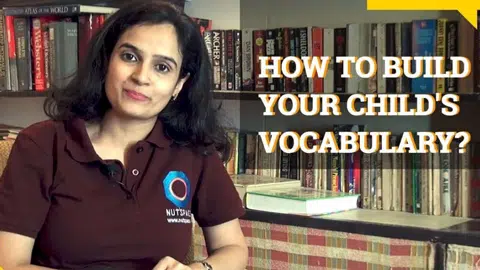It is a common belief that in order to do well in life, we must learn to communicate well. Speech pathways in the brain seem to develop at a later stage and hence building a strong vocabulary during the early years of life remains neglected. However, if we were to go by the research done in this field, we realise that as adults we underestimate the learning and grasping abilities of a child merely on the basis of their responses. Since speech pathways in children are still in developmental stages, their response is not directly proportionate to their reception. Learning to Read and Write: What Research Reveals further elucidates the need to incorporate vocabulary during the early years.
Here is how one can introduce and incorporate vocabulary during the various early years developmental stages:
0-6 weeks
Although, the baby at this stage is too small to respond or talk but they are able listeners. The start to building great vocabulary is by talking and regardless of popular beliefs, it is never too early to start. At this stage, it makes sense to start with nouns such as body parts and objects within reach. Repetitive usage of verbs like wear, drink, and washing will create a habit of talking about what is happening in the now and present.
At this time, an introduction to brightly colored books will be great to make the reading experience later a fun-filled activity.
6 weeks to 6 months
At this stage, the speech pathways in a child’s brain are still developing but the hearing and visual pathways are already developed. So the baby is well equipped to understand anything you say. An interaction on regular basis at this stage leads to speech and a wider vocabulary bank.
6 months to 12 months
At this stage, exaggeration, gesticulation, and miming works best with the baby. A great deal of stress placed on keywords will help them make connections between the spoken word and the object. The introduction of words at this stage is done best through association.
Textured interaction with books at this time also gives a great deal of stimulation. Therefore, touch and feel books at this stage are a great addition not only from the point of view of vocabulary but also building spatial awareness through three-dimensional fields. In the present times, parents tend to take pride when their children are interacting with mobile phones. However, this is never the wise choice. Books can help cut the passive screen time and enhance movement, thus building motor skills in a child. The effort takes to turn a page of the book helps in developing motor skills. If at all one must engage a child in screen time, it must be active.
You can read more about the same here: Parents: 3 Ways to Reduce Passive Screen Time for Children
12 to 18 months
When a child reaches the age of one, their growing vocabulary can be given a further nudge by introducing adverbs and prepositions. However, it must all be in play and experiential so that it does not turn into a burdensome activity. New words could be slipped into daily conversations through music. A child at this point in time also begins to understand emotions, hence the need to involve words that depict emotions- both positive and negative. Experiential learning at this time is of great importance. Orchestrating words will help the child retain more.
18 months to 24 months
A more concentrated effort needs to be made towards introducing letters and sounds at this stage along with objects, such as “A” as in “apple”. The sounds and letters can be reinforced by pinning the flashcards on the walls. Exaggerated actions in action songs also help in stimulating vocabulary.
24 months onwards
Now is the time to expose them to words not just through talking but also through book readings. Although a great deal of enhancement in vocabulary is still achieved through talking, reading out books on a daily basis will see a great increase in their vocabulary.
Since talking and reading are essentially the two major ways of building a rich vocabulary, here are some recommendations:
Vocabulary Builder for Children: VocabAct is a great way to expose your child to new words.
Here are some book recommendations that you can read and explore with your child Parents: 23 Books to Read to Your Child (from 0-7 years)

